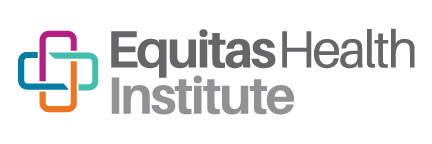International Non-Binary People’s Day 2020
Happy International Non-Binary People’s Day, y’all! While some of the terminology might be new, in human populations there have always been folks whose gender identity didn’t fit neatly into the male or female boxes. Here’s some tips to be a better ally and advocate for non-binary people:
1. Don’t assume or guess what another person’s gender identity is based on observable gender expression cues.
2. Introduce yourself with your name and pronouns to signal your intent to be inclusive. This also will create space for the other person to share their pronouns if they like. You can also accomplish this by wearing a pronoun pin or sticker.
3. Many non-binary people use the singular they (they/them theirs) as their set of personal pronouns. Other non-binary people use neopronouns (or new pronouns, such as xe, xir, xirs). Remember to meet people where they are and believe their reality. If someone asserts pronouns you are unfamiliar with, roll with it. It’s ok to politely ask “Oh, I’m not familiar with those pronouns. Would you mind explaining what those mean for you?” It’s important to follow this up with a sincere effort to get it right in future interactions.
4. Make sure that your organization provides gender neutral or all-gender restrooms and/or changing rooms. In addition, non-binary folks should be allowed to use the gendered facilities they feel most comfortable using, particularly if no gender-neutral spaces are available.
5. Organizational dress codes should be gender-neutral and fairly enforced. Often dress codes are disproportionately used to single out and punish trans and non-binary folks.
6. Push for laws and organizational policies that protect non-binary folks from discrimination. Organizational non-discrimination policies should cover gender expression as well as gender identity and sexual orientation. Repeated or intentional misgendering of fellow members within companies or institutions should be considered harassing behavior, and as such, unacceptable.
7. On forms, give people the option to share their chosen name if it is different from their legal name, as well as their pronouns. If this information is shared, it should then be highlighted.
8. Be mindful of the unnecessary use of gendered language. For example, if you have a policy or service that is available to people who menstruate, you should use that clear and direct language, rather than saying the policy or service is “available to women.” Not all women menstruate, and not all people who menstruate are women.
If you have any additional questions about non-binary inclusive policies, or you are interested in training on this topic, please contact Equitas Health Lead Trainer Ramona Peel at ramonapeel@equitashealth.com.
